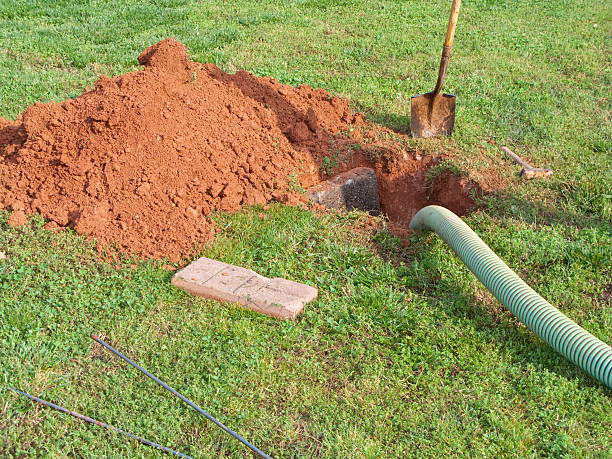A septic system is an important component of many homes or properties not connected to a municipal sewer system. It’s responsible for the safe breakdown and treatment of wastewater. At the heart of a septic system, you’ll find the septic pump, which does the heavy lifting of moving wastewater out of the tank and into the drain field.
While septic pumps are designed to last, there are times when they wear out or encounter malfunctions. Identifying a problem early is key if you want to prevent messy backups and potential environmental hazards.
Let’s explore several telltale signs of a failing or worn septic pump.
1. Alarms Keep Blaring
Many modern septic pumps come equipped with an alarm system. This high-pitched alert is designed to grab your attention if the water level in your tank rises too high. Since the septic pump’s job is to keep the tank at manageable levels, an alarm going off is a sure sign something is wrong. Don’t ignore it – a flooded septic tank can lead to serious backups!
2. Gurgling Noises
Strange noises coming from your plumbing are generally a cause for concern, and that applies to your septic system too. If you start hearing gurgling noises coming from toilets, sink drains, or when you run a dishwasher or washing machine, the septic pump may be struggling to keep up. These sounds might indicate air trapped in the system or that the pump is straining to move the wastewater.
3. Foul Odors
A well-maintained and correctly functioning septic system shouldn’t produce very much odor at all. Nasty septic smells creeping into your home or around your yard are a definite red flag. These odors occur when wastewater and solids can’t leave the tank properly, causing them to build up and decompose. If the smells are strong, it could mean your tank is in danger of overflowing.
4. Slow-Moving Drains
Is water pooling in your sink or shower even after the drain stopper has been opened? Does your toilet take a long time to flush and refill? Slow drains throughout the house could mean a few things, including a clog further down the drain lines. However, widespread slow drainage is indicative of a tank that’s not emptying correctly and a pump unable to handle wastewater levels. It’s a sign that the system is under strain.
5. Pools of Water in Your Yard
Your septic drain field should be able to deal with the treated effluent it receives. However, a failing or overloaded system can result in soggy patches in your yard above the drain field or even pools of standing water. This is both unpleasant and a health hazard, as the water likely contains harmful bacteria.
6. Lush Patches of Grass
While pools of wastewater are an obvious sign of trouble, even abnormally green and lush areas over your drain field are a giveaway that something isn’t quite right. Septic effluent contains nutrients that can act as a fertilizer. If too much wastewater is surfacing, it will result in unusually rapid plant growth. If certain areas of your yard seem extra vibrant, it might be worth investigating.
7. Electrical Issues
Septic pumps rely on electricity to function. Recurrent problems with the electrical components, such as a tripped circuit breaker, a constantly running pump, or a pump that only turns on intermittently, might signal trouble. While it may not be the pump itself causing the problem, this unusual electrical activity needs to be addressed to ensure the smooth operation of your system.
8. Old Age
Even the best-maintained septic pumps won’t last forever. Their average lifespan typically falls between 7-10 years. If your pump is getting on in years and other warning signs appear, it’s wise to consider a replacement. Proactive action may prevent a complete breakdown, minimizing potential damage and inconvenience.
9. Increased Water Bills
While harder to directly tie to septic troubles, unexpectedly high water bills can hint at underlying problems. A leaky pipe caused by backed-up wastewater or a pump that runs nonstop due to a malfunctioning part will drive up utility costs. If you notice water bill spikes, investigate whether plumbing issues (including your septic system) are to blame.
What To Do If You Suspect Septic Pump Problems
It’s important to pay attention to warning signs when it comes to your septic system. Ignoring them could lead to more significant issues down the line. If you notice any of the following signs, it’s crucial to contact a septic professional as soon as possible: slow draining, gurgling sounds, unpleasant odors, sewage backups, or wet spots in your yard.
A septic professional will be able to accurately diagnose the problem and provide suitable solutions. Depending on the issue’s severity, they may recommend a simple fix, such as cleaning or repairing the system. However, in some cases, a complete septic pump replacement may be necessary. It’s always better to address the problem sooner rather than later to prevent unpleasant consequences and save you money in the long run.
Conclusion
Your septic pump is a hard-working and essential part of a healthy septic system. Don’t ignore the early warning signs of its failure!
A failing pump can cause raw sewage backups, costly repairs, property damage, and environmental contamination. Staying alert for changes in your system allows you to prevent major damage, saving you time, money, and headaches.
If you require any septic system expertise, excavation services, or other related solutions, consider VI REEL. We are committed to providing exceptional service and ensuring your septic system runs safely and effectively for years to come.


